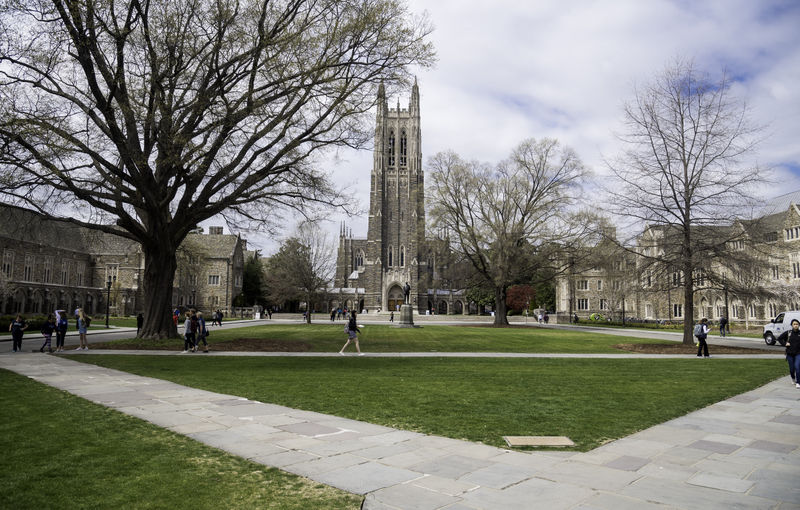Durham City Council Ignores Planning Commission, Votes for Single-Family Sprawl on Virgil Road
- Durham Dispatch

- May 25, 2024
- 3 min read
Updated: Jul 22, 2024

Location and map of Virgil Road Assemblage. Image credit: N&O
On May 20th, City Council approved 202 acres of "single-family sprawl" on Virgil Road. In a controversial 4-3 vote, Durham city government ignored the recommendation of their Planning Commission, which voted 10-0 against the developer’s proposal.
Monday’s debate hinged on whether 531 homes should be built on a plot of land in southeast Durham called the Virgil Road Assemblage. The development company, Taylor Morrison, estimated that the new homes would sell for $350,000 and $450,000 [1]. Council member Cook pointed out that similar homes nearby built by the same developer were selling for over $600,000 [2, timestamp 4:19:00].
Council members Javiera Caballero, Mark-Antony Middleton, Carl Rist and Mayor Leonardo Williams voted to approve the Virgil Road proposal. Nate Baker, Chelsea Cook, DeDreana Freeman voted against.
For development votes, the 4-3 split is typical for the current City Council. The Caballero-Middleton-Rist-Williams group tends to rubber-stamp requests from property developers, even in "horrendous" cases like the Virgil Road proposal. The Baker-Cook-Freeman group usually pushes back against developer projects that don’t offer affordability, innovative design, or community benefits.
The Planning Commission, three City Council members, and many community members objected to the Virgil Road proposal because it lacked any aspect of smart, high-quality development. The future neighborhoods would not be walkable or bike-able. The houses would be cookie-cutter and the vast majority (94 percent) would be market-rate [1]. The Taylor Morrison company also failed to offer mixed-use features like parks, shops, or greenways.
“Building a bedroom community for Raleigh just feels like trash, if I’m being blatantly honest”, council member Freeman said about the Virgil Road proposal [2, timestamp 4:11:30].

Council member DeDreana Freeman. Image credit: WaterNow Alliance
Council members that voted for the Virgil Road proposal sought to downplay environmental concerns. The plot is mostly forested land and low hills that would be clear-cut and leveled by the private developer. The sediment pollution from the construction would run into Lick Creek and ultimately Falls Lake.
“I want to say on the issue of lake impacts, this issue of nutrients and algal blooms are a serious issue for Falls Lake,” said council member Rist, “I’ll call your attention council members to the presentation that we had last work session from Michelle Woolfork… what she talked about were these two nitrates that we’re tracking all the time in Falls Lake, one is nitrogen… 56 percent of the nitrogen that gets in Falls Lake comes from forest and agriculture… For phosphorus, the other nutrient we measure closely, 54 percent comes from forest and agriculture.”

Council member Carl Rist. Image credit: City of Durham
Council member Rist’s remark implied that clear-cutting the forested land would improve the health of Falls Lake. That is misleading according to a UNC study about Falls Lake, which states that forests act as a natural shield for lake, stopping 81 percent of the nutrient pollution that would otherwise occur [3, pg. 30]. The UNC study recommends that 70 percent of land around Falls Lake should be forested to protect the body of water, which is a major source of clean drinking water for Raleigh.
Mayor Williams didn’t bother with cherry-picked science. He said that Falls Lake has long been polluted and there is no issue making the problem worse.
“First of all, Falls Lake is a man-made lake. It was made back in 1981 and it was jacked up when it was created,” said Mayor Williams, “It was made then it can be made again, so I don’t think it’s going anywhere.” [2, timestamp 4:50:00]
Annexing and effectively approving "single-family sprawl" on 202 acres of land was a major decision for Durham, but few people know that the Virgil Road debate even took place. When it comes to the activities of property developers and their political allies, the Bull City is a news desert. Greater public education and activism on development issues would certainly be in the public interest, since it is the issue that City Council spends the most time on.
In the Virgil Road case and many others, the Baker-Cook-Freeman group on City Council deserve praise for their stance in favor of smart, high-quality development. The Caballero-Middleton-Rist-Williams group, which has acted as a rubber-stamp for property developers, should be pressured to change their approach.

Falls Lake. Image credit: UNC
Work Cited
1. Moore, Mary Helen. “Durham Approves Over 800 New Homes and Apartments Despite Sprawl Concerns.” News and Observer, 23 May 2024, www.newsobserver.com/news/business/real-estate-news/article288619505.html.
2. “Durham City Council May 20, 2024.” YouTube, 21 May 2024, www.youtube.com/watch?v=dYlIzuMeVI4.
3. The University of North Carolina. “Falls Lake Study.” Final Report to the North Carolina General Assembly, 2023, unrba.org/sites/default/files/Fall-Lake-Report-2023.pdf.



1D0-1045-24-D Exam Questions
1Z0-1064-23 Exam Questions
1Z0-1071-24 Exam Questions
1Z0-1075-23 Exam Questions
1Z0-1083-23 Exam Questions
1Z0-808 Exam Questions
1Z0-1077-23 Exam Questions
1Z0-516 Exam Questions
1Z0-1080-23 Exam Questions
1Z0-517 Exam Questions
1Z0-1066-23 Exam Questions
1Z0-519 Exam Questions
1Z0-1082-23 Exam Questions
1Z0-521 Exam Questions
1Z0-1032-23 Exam Questions
1Z0-1059-23 Exam Questions
1Z0-1058-23 Exam Questions
1Z0-1079-23 Exam Questions
1Z0-997-23 Exam Questions
1D0-1054-23-D Exam Questions
1D0-1055-23-D Exam Questions
1D0-1056-23-D Exam Questions
1D0-1060-23-D Exam Questions
1D0-1065-23-D Exam Questions
1D0-1077-23-D Exam Questions
1D0-1052-23-D Exam Questions
1D0-1069-23-D Exam Questions
1D0-1048-23-D Exam Questions
1Z0-1048-23 Exam Questions
1D0-1074-23-D Exam Questions
1D0-1075-23-D Exam Questions
1D0-1047-23-D Exam Questions
1Z0-1047-23 Exam Questions
1D0-1050-23-D Exam Questions
1D0-1053-23-D Exam Questions
1Z0-1091-22 Exam Questions
1D0-1073-23-D Exam Questions
1D0-1066-23-D Exam Questions
1D0-1058-23-D Exam Questions
1D0-1032-23-D Exam Questions